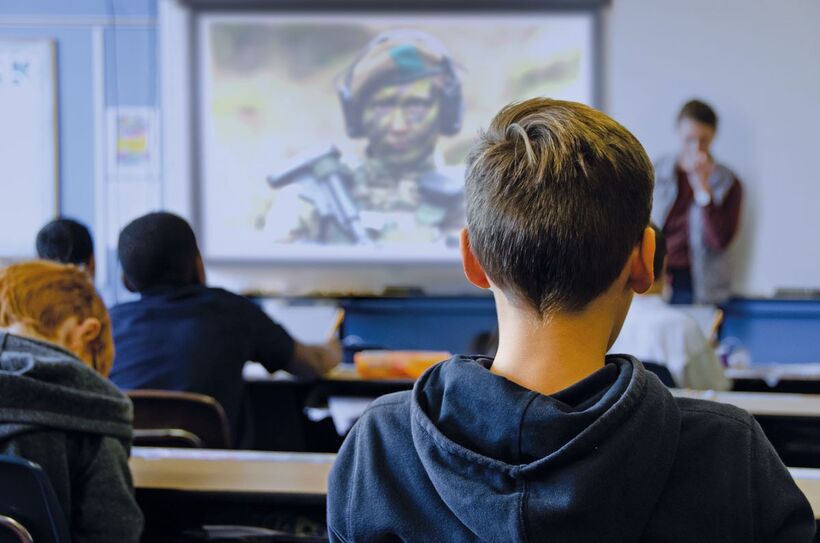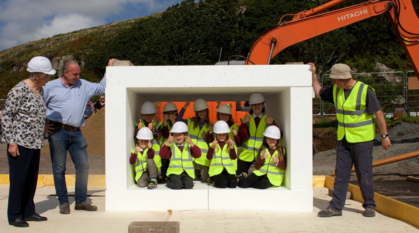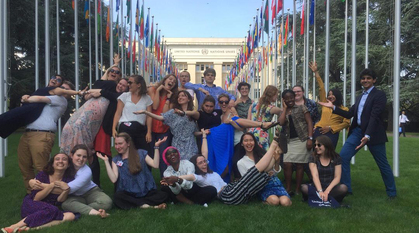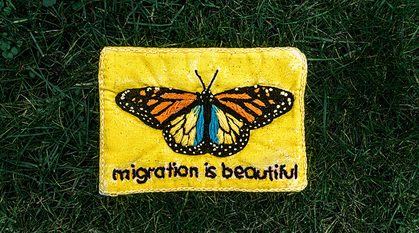A balanced view: the need for critical thinking in our schools
Isabel Cartwright explains how we can encourage schools to consider safety, impartiality and freedom of conscience when approached by the military.

[QUOTE-START]
"Rock-climbing, abseiling, camping, sailing, loads of trips... it sounded amazing. Everyone was saying they wanted to go. It was only at the very end that I realised it was the Navy Cadets."
This was my son's experience when his form teacher presented an "exciting" opportunity for her Year 7 students in their very first week of secondary school.
A history of military engagement in schools
Military engagement in schools is nothing new. In 1859 the idea of cadet units in schools was developed by the Secretary of State for War, Jonathan Peel. Peel wrote to public schools and universities, inviting them to form units of the Volunteer Corps.
However questionable this was (and to me, very), the purpose was clear, with a focus on officer training. Today's Combined Cadet Force (CCF), formed in 1948 but expanded significantly in the last decade, focuses on deprived areas and young people who are "underachieving".
The UK is one of the few countries worldwide that still recruits 16-year-olds to its military. And it's unique in relying so heavily on under-18s to fill the ranks. The Armed Forces use an understanding of adolescent psychology to embed positive ideas about military life and exploit developmental vulnerabilities and social inequality.
As ForcesWatch has shown, the youngest recruits are channelled into the most dangerous roles and have worse long-term mental health outcomes than civilians of comparable age and background. New research into veteran suicides (not easily dismissed since it was commissioned by the Ministry of Defence) found that the risk of suicide for young veterans is two to four times higher than for regular civilians.
Seeing the dangers
Schools need to think carefully about these risks to young people. There's currently no official guidance on military engagement (though Quakers in Britain is calling for it). The extent of military involvement depends on the values and attitudes of individual headteachers, heads of Year 11 or careers staff. Under-18s require parental consent to enlist, but few are aware of the facts.
A tool to start the conversation
We often hear from Quaker parents, grandparents and teachers. They're troubled by careers events dominated by the Armed Forces, by visits to military museums, bases and battlefields, by arms company roadshows and children's books that romanticise war. It's hard to question something so often seen as positive by the rest of the school community, both for those inside and outside of it.
So we've produced a leaflet called Responding to military engagement in schools (PDF), available now in English and shortly to be available in Welsh. It aims to help those with concerns begin conversations about how military engagement affects safety and wellbeing, educational impartiality and freedom of conscience. It also highlights the obligation to promote peace, tolerance and nonviolence (see UN Sustainable Development Goal 4.7 and the Convention on the Rights of the Child, Article 29).
The need for critical thinking
Our leaflet makes clear that the quality of education is also at stake. Schools have a duty of impartiality, which, as recent government guidance indicates, includes discussion of military intervention. We draw on this guidance and the curriculums of England, Scotland and Wales to show that balance is required. The leaflet includes a checklist for schools, plus a range of websites that offer perspectives on military jobs and issues to help students think critically and make informed choices.
Quakers taking action
I'm inspired by the action that Quakers have been taking. In response to concerns about militarism, they have formed peace education projects such as the Mid Wales Peaceful Schools Project. Quakers have also been involved in research into the recruitment of children to the military in Welsh schools (PDF), and in lobbying governments.
Working alongside these initiatives – and with partners such as Child Rights International, the Peace Pledge Union, ForcesWatch and the Fellowship of Reconciliation/Cymdeithas y Cymod – the Welsh and Scottish governments have recognised that guidance is needed. This is a start.
My son was disappointed not to join the activities offered by the Navy Cadets, but he was clear that he didn't want to take part. He even told his classmates he didn't believe in the military (I held my breath to hear the reaction!). They were surprised but interested in this different point of view. We clearly need more discussion and perspectives, as well as free clubs and activities that aren't underpinned by violence.
Our leaflet is available online and we'll be doing a new year mailout to schools we know have been visited by the military or by arms companies. Please get in touch for copies to share with families, young people and teachers in your Quaker and community networks.
Given the increased militarism of many aspects of everyday life, from gaming to sports events, it's crucial that schools foster critical thinking and build peace.


